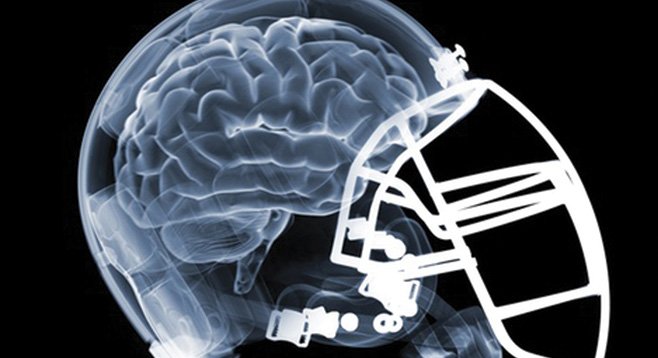 Brain Injury From Head Trauma May Contribute to Alzheimer’s A new suggests that people with brain injuries following head trauma may have buildup of the plaques related to AlzheimerÛªs disease in their brains. The research is published in the online issue of Neurologyå¨, the medical journal of the American Academy of Neurology. ÛÏThe study is small and the findings preliminary, however, we did find an increased buildup of amyloid plaques in people who had previously sustained a traumatic brain injury,Û said study author Professor David Sharp, MD, of Imperial College London, in the United Kingdom. ÛÏThe areas of the brain affected by plaques overlapped those areas affected in AlzheimerÛªs disease, but other areas were involved. People after a head injury are more likely to develop dementia, but it isnÛªt clear why. Our findings suggest TBI leads to the development of the plaques which are a well-known feature of AlzheimerÛªs disease.Û For the study, nine people with an average age of 44 who had a single moderate to severe Traumatic Brain Injury (TBI) had PET and MRI brain scans. The brain injuries occurred between 11 months and up to 17 years before the start of the study. The participants were compared to 10 people with AlzheimerÛªs disease and nine healthy participants. Both the people with brain injuries and the people with AlzheimerÛªs disease had plaques in the posterior cingulate cortex, which is affected early in AlzheimerÛªs, but only those with brain injuries had plaques in the cerebellum. The researchers also found that plaques were increased in patients with more damage to the brainÛªs white matter. ÛÏIt suggests that plaques are triggered by a different mechanism after a traumatic brain injury,Û Sharp said. ÛÏThe damage to the brainÛªs white matter at the time of the injury may act as a trigger for plaque production.Û Can you say NFL!
Brain Injury From Head Trauma May Contribute to Alzheimer’s A new suggests that people with brain injuries following head trauma may have buildup of the plaques related to AlzheimerÛªs disease in their brains. The research is published in the online issue of Neurologyå¨, the medical journal of the American Academy of Neurology. ÛÏThe study is small and the findings preliminary, however, we did find an increased buildup of amyloid plaques in people who had previously sustained a traumatic brain injury,Û said study author Professor David Sharp, MD, of Imperial College London, in the United Kingdom. ÛÏThe areas of the brain affected by plaques overlapped those areas affected in AlzheimerÛªs disease, but other areas were involved. People after a head injury are more likely to develop dementia, but it isnÛªt clear why. Our findings suggest TBI leads to the development of the plaques which are a well-known feature of AlzheimerÛªs disease.Û For the study, nine people with an average age of 44 who had a single moderate to severe Traumatic Brain Injury (TBI) had PET and MRI brain scans. The brain injuries occurred between 11 months and up to 17 years before the start of the study. The participants were compared to 10 people with AlzheimerÛªs disease and nine healthy participants. Both the people with brain injuries and the people with AlzheimerÛªs disease had plaques in the posterior cingulate cortex, which is affected early in AlzheimerÛªs, but only those with brain injuries had plaques in the cerebellum. The researchers also found that plaques were increased in patients with more damage to the brainÛªs white matter. ÛÏIt suggests that plaques are triggered by a different mechanism after a traumatic brain injury,Û Sharp said. ÛÏThe damage to the brainÛªs white matter at the time of the injury may act as a trigger for plaque production.Û Can you say NFL!
